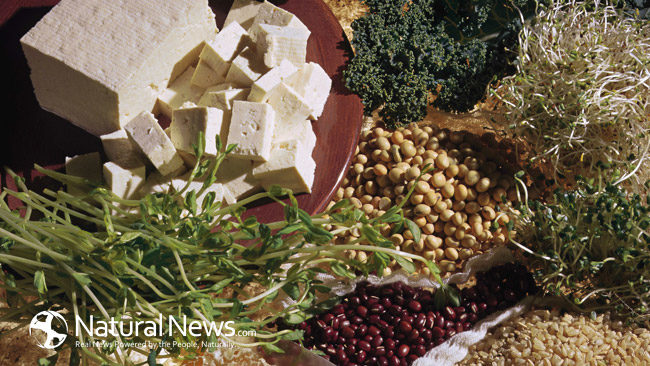Tofu is a popular soy product that originates from China. It is made by condensing soy milk and pressing it into blocks (very similar to how cheese is made). To keep in this solid block-form, nigari is used which is a type of salt that comes from seawater. One of the more recent debates regarding soy is that soybeans are mostly grown in the U.S. Their production is widely from the use of GMO’s. The effects of genetically modified crops on health are still in need of long-term research. Tofu is a protein choice among those who practice a vegan/vegetarian diet.
Eating tofu can be part of a healthy diet because it is full of nutrients and is low in calories. About 100 grams or 3.5 ounces of tofu has about 145 calories, 17 grams of protein and 3 grams of carbohydrates. It does have 9 grams of fat in this serving. There are also other nutrients including calcium (53% of daily value), manganese (51% of daily value), iron, vitamin A, and magnesium, all in it.
Another great quality of tofu is that it contains isoflavones. These play a role in the activation of estrogen. Isoflavones act as phytoestrogens, so they act like the role estrogen plays in the body, but they don’t stimulate menstruation or mark inflammation. This is a topic of controversy revolving around the increased risk of cancer for women, especially those who are postmenopausal. However, the European Food Safety Authority (EFSA) has determined that isoflavones don’t increase the risk for thyroid, breast, or uterine cancer. Other research says that women who eat more soy are less likely to die of cancer if they were diagnosed. They also may be less likely to have re-occurrence of cancer. One study has even said women who eat soy are up to 32% less likely to have breast cancer. There are great benefits of isoflavones tofu which include few menopause symptoms, possibly reducing the risk of depression during pregnancy, improving bone strength, and even improving brain function such as memory and attention.
Tofu can also lower the risk of heart disease because eating it can lower cholesterol. It can lower the bad cholesterol (LDL) by 3-4%. Soy may also help lower blood pressure which can help ward off diabetes.
A possible downfall about tofu is that it does contain antinutrients. These are food compounds that impede upon absorption of other nutrients in foods. Tofu has Trypsin inhibitors which can block protein absorption and some people complain of indigestion when they consume this. It also has phytates which can reduce absorption of iron, zinc, and calcium.
Tofu can be part of a healthy, balanced diet to meet nutritional needs. The pros and cons of eating soy remain, but eating a variety of foods is always recommended. Tofu is a main component of many people’s plant-based diets. It absorbs many flavors and can be served in a variety of forms. The texture and taste variety make tofu attractive and easy to cook with. Our body benefits from what we put in it, so choose wisely and nutritionally as much as you can.
Soy and Health Update: Evaluation of the Clinical and Epidemiologic Literature – PMC (nih.gov)








